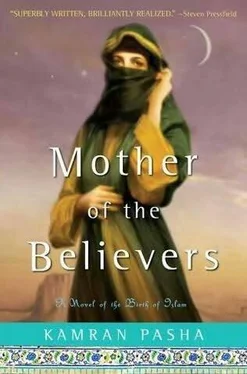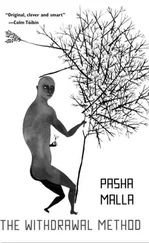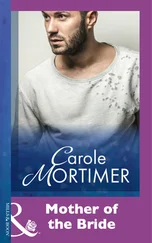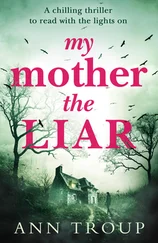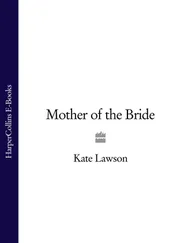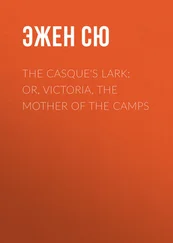And then Ali unsheathed his sword and I heard a gasp and realized with some surprise that it was my own. He held in his hand a blade unlike any I had ever seen. Two blades actually, for the sword split in half as it tapered to the point, making it look like a forked serpent’s tongue. The hilt was made of polished silver, and gold filigree was etched onto the dual blades, which had a black sheen that suggested they were forged not from steel but from some other metal I had never encountered. I would later learn that this sword was called Dhul Fiqar and belonged to the Messenger himself. Whenever I asked him in later years where he had acquired such an unusual and magnificent blade, he merely smiled and changed the subject.
Ali flicked his wrist and Dhul Fiqar cut through the air, making a strange singing sound that added to its mystery. He moved forward to face his opponents, and I saw his eye fall on Waleed-one of the men who had tried to assassinate the Prophet the night he escaped Mecca. There was a strange look between them, and I remembered what Ali had said of that night and the promise he had made to Waleed that the next time they would meet, the brother of Hind would die.
A shadow fell over the battlefield and I looked up to see that a heavy cloud blanketed the sun. Which was peculiar, as the sky had been absolutely clear only moments before.
There was a moment of terrible silence, as if history itself were holding its breath. And then, with a cry of fury, Utbah rushed at the men who had answered his challenge. Ubayda moved to intercept him and their swords met with a terrifying crash. And then Hamza was upon Shaybah and Ali faced young Waleed.
Sparks flew as the three men struck at one another, and there was a terrifying beauty to their dance. Despite his age and bulk, Hamza spun and parried like a youth, and Ubayda struck at Utbah’s sword with such fury that I was surprised it did not shatter under the blows.
My eyes flew to Ali, who seemed to be moving at a different speed from the others. It was as if time around him slowed; his sword movements were elegant and beautiful, like those of a fish swimming in a gentle stream. Waleed looked confused as he met Ali’s attack, as if he also sensed something was different about his opponent. I saw the looks of consternation from men on both sides of the divide as Ali fought from inside the strange dreamworld that he alone seemed to inhabit.
And then I thought the sun must have emerged from behind the cloud, as Dhul Fiqar began to sparkle and glow, the blade shining brightly as if it were a torch in Ali’s hand. But I soon realized with some shock that the field was still covered in shadow and I could not account for the strange light that was emanating from the sword.
Waleed saw it, too, and his mouth fell open in shock. And at that moment, Ali raised the sword and, with the grace of an eagle racing toward its prey, he ran the blade through Waleed’s neck. The young man’s head fell cleanly off its shoulders with one stroke and blood erupted like a volcano from the severed neck. Waleed’s headless body stood frozen as if in disbelief and then fell to the side.
Ali’s prophecy had at last come true.
I heard a soft moan and saw that Abu Huzayfa was struggling to keep his composure at the sight of his brother’s decapitation. And then the cloud that had unexpectedly covered the sun evaporated just as mysteriously, and the field was burning with light again. I saw Utbah’s face go white as he saw his son’s head lying only a few feet away from him, and then, with the terrible cry of a man who no longer wished to live, he threw himself at Ubayda.
An instant later I saw Hamza slash down onto Shaybah’s shoulder. Hamza’s broadsword tore through muscle and bone until Shaybah’s sword arm was ripped away, and the champion of Quraysh died in a flood of blood and convulsions.
Utbah now stood alone against three men, and yet he continued to fight as if he were supported by an army. There was a madness in his eyes that gave him a ferocity I have never seen before on any battlefield. The Prophet’s cousin Ubayda fell back under Utbah’s furious blows and then suddenly made a swift kick with his leg, catching the Meccan chieftain behind the ankle. Utbah stumbled and fell.
But as he did so, he swung his ugly sword and cut off Ubayda’s leg above his knee. Ubayda screamed in agony as a river of gore erupted from his stump, and I heard a terrible sound of grief erupt from Muhammad’s throat.
Utbah managed to get to his feet and moved toward Ubayda, ready to deliver the deathblow. He raised his sword high…and Ali threw Dhul Fiqar across the battlefield. It spun in the air like a disk, flying with perfect precision, until the double blades connected with Utbah’s sword arm and severed his wrist.
Utbah did not cry out, did not appear to feel any pain. He stood weaponless and alone, his eyes glistening as he stared at the headless body of his beloved son. And then Hamza was upon him and the mighty broadsword tore through Utbah’s rib cage and emerged from his back, like a knife cutting through a milk curd.
Utbah stood there, impaled through the heart. I saw him gaze across the field to his surviving son, his traitorous boy who had chosen Muhammad over him. Abu Huzayfa’s face was frozen in horror as he met his dying father’s gaze.
And then Utbah did something that I will never forget or perhaps understand. He smiled at Abu Huzayfa and nodded, as if he were proud of him. With a final shudder, the father of Hind fell to his knees and returned to the God he had denied.
Silence reigned over the battlefield as the horrified Meccans dispatched sentries to recover the bodies of their slain champions. Hamza and Ali lifted Ubayda, who was swimming in a pool of his own blood but somehow managed to live. They carried their kinsman to the Messenger’s command post, resting his head in my husband’s lap. My father immediately knelt down and tried to bandage the stump and cut off the bleeding, but we all knew that Ubayda had lost too much blood for Abu Bakr’s efforts to matter.
A shadow fell over us and I saw Abu Huzayfa standing there, looking down at the men who had killed his father, uncle, and brother. He reached for his belt, his hand floating toward the hilt of his own blade. I felt a scream of warning rising in my throat…and then Abu Huzayfa removed a wolfskin flask that was buckled near his scabbard. And he knelt down and poured water into Ubayda’s lips, giving him one final drink before the angel took him.
Ubayda sucked on the flask, and then coughed up blood. He looked gratefully at Abu Huzayfa, and I thought I saw in his eyes a plea for forgiveness. Abu Huzayfa did not smile in return, but he nodded slowly and walked off to grieve alone.
Ubayda turned to his cousin Muhammad, whom he had followed to his death.
“Am…am I not a martyr…?”
I saw tears glistening in my husband’s black eyes.
“Indeed you are.”
Ubayda smiled at that and went still.
The Prophet closed Ubayda’s eyes with his hand and then rose to face the Meccan army. The ritual of challenge had been completed.
The Battle of Badr was about to begin.
I gazed across the field to the massive army that was ready to move and avenge the deaths of its heroes. The acrid smell of blood was in the air, and I could taste the sweat and fear that covered the valley like the cloud that had appeared during the challenge.
And then I saw a tall and handsome figure emerge from the Meccan lines and my blood ran cold. Abu Jahl moved forward with dignity to stand near the pool of blood that marked Utbah’s fall. He stared across the field to the command post and then clapped his hands contemptuously.
The Prophet met his gaze without a word. And then I saw Abu Jahl’s eyes fall on me and a smile played across his sensuous lips. I wrapped my scarf closer across my breasts, and he smiled wider at my discomfiture, like a wolf that had found the weakest lamb in the flock. I suddenly had a terrible image of what would happen if our men were defeated and I was taken back to Abu Jahl’s tent as a slave. The memory of how his well-manicured hands had torn apart Sumaya’s womb without any hesitation haunted me.
Читать дальше
